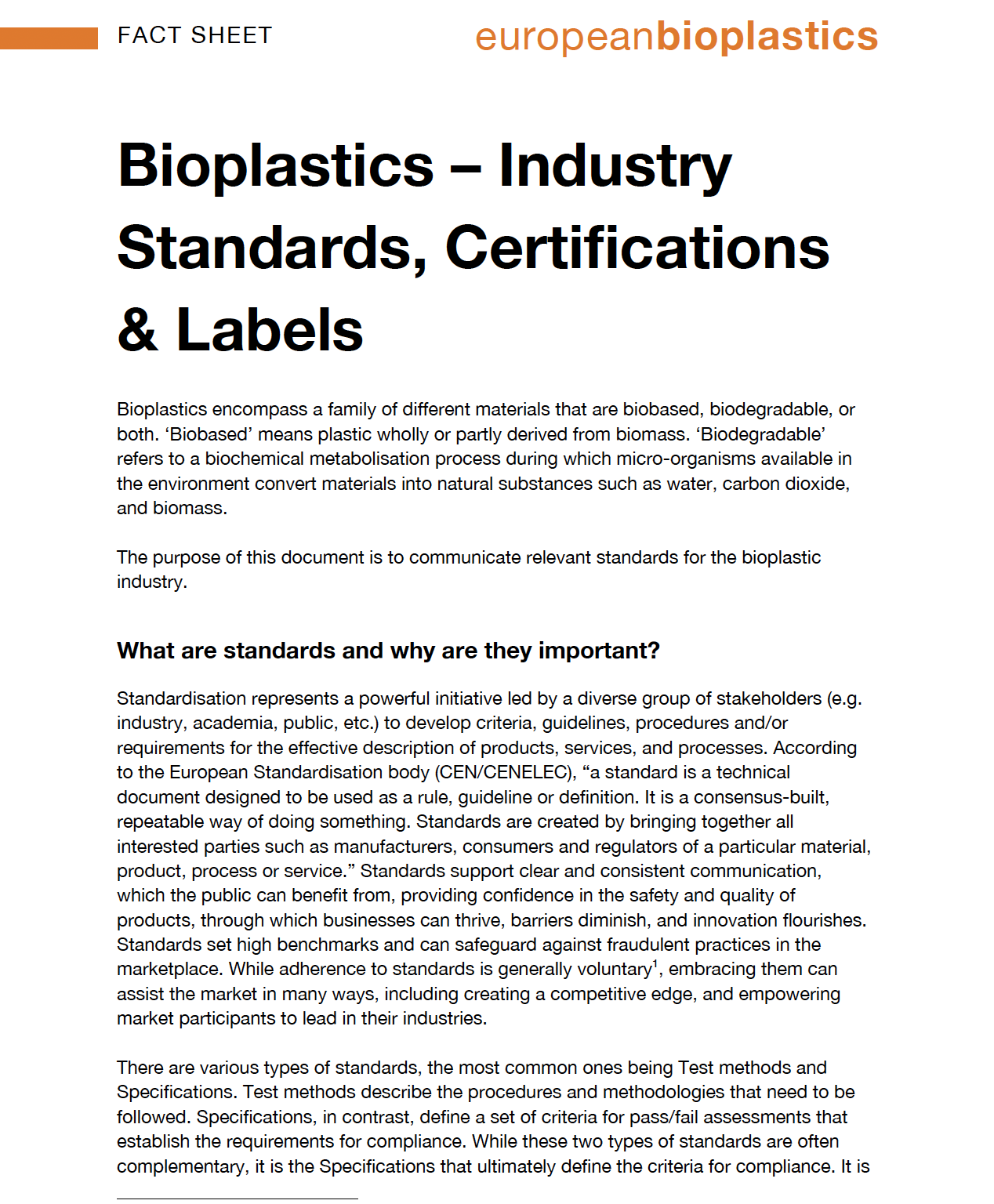Bioplastics encompass a family of different materials that are biobased, biodegradable, or both. ‘Biobased’ means plastic wholly or partly derived from biomass. ‘Biodegradable’ refers to a biochemical metabolisation process during which micro-organisms available in the environment convert materials into natural substances such as water, carbon dioxide, and biomass.
The purpose of this document is to communicate relevant standards for the bioplastic industry.
What are standards and why are they important?
Standardisation represents a powerful initiative led by a diverse group of stakeholders (e.g. industry, academia, public, etc.) to develop criteria, guidelines, procedures and/or requirements for the effective description of products, services, and processes. According to the European Standardisation body (CEN/CENELEC), “a standard is a technical document designed to be used as a rule, guideline or definition. It is a consensus-built, repeatable way of doing something. Standards are created by bringing together all interested parties such as manufacturers, consumers and regulators of a particular material, product, process or service.” Standards support clear and consistent communication, which the public can benefit from, providing confidence in the safety and quality of products, through which businesses can thrive, barriers diminish, and innovation flourishes. Standards set high benchmarks and can safeguard against fraudulent practices in the marketplace. While adherence to standards is generally voluntary1 , embracing them can assist the market in many ways, including creating a competitive edge, and empowering market participants to lead in their industries.
